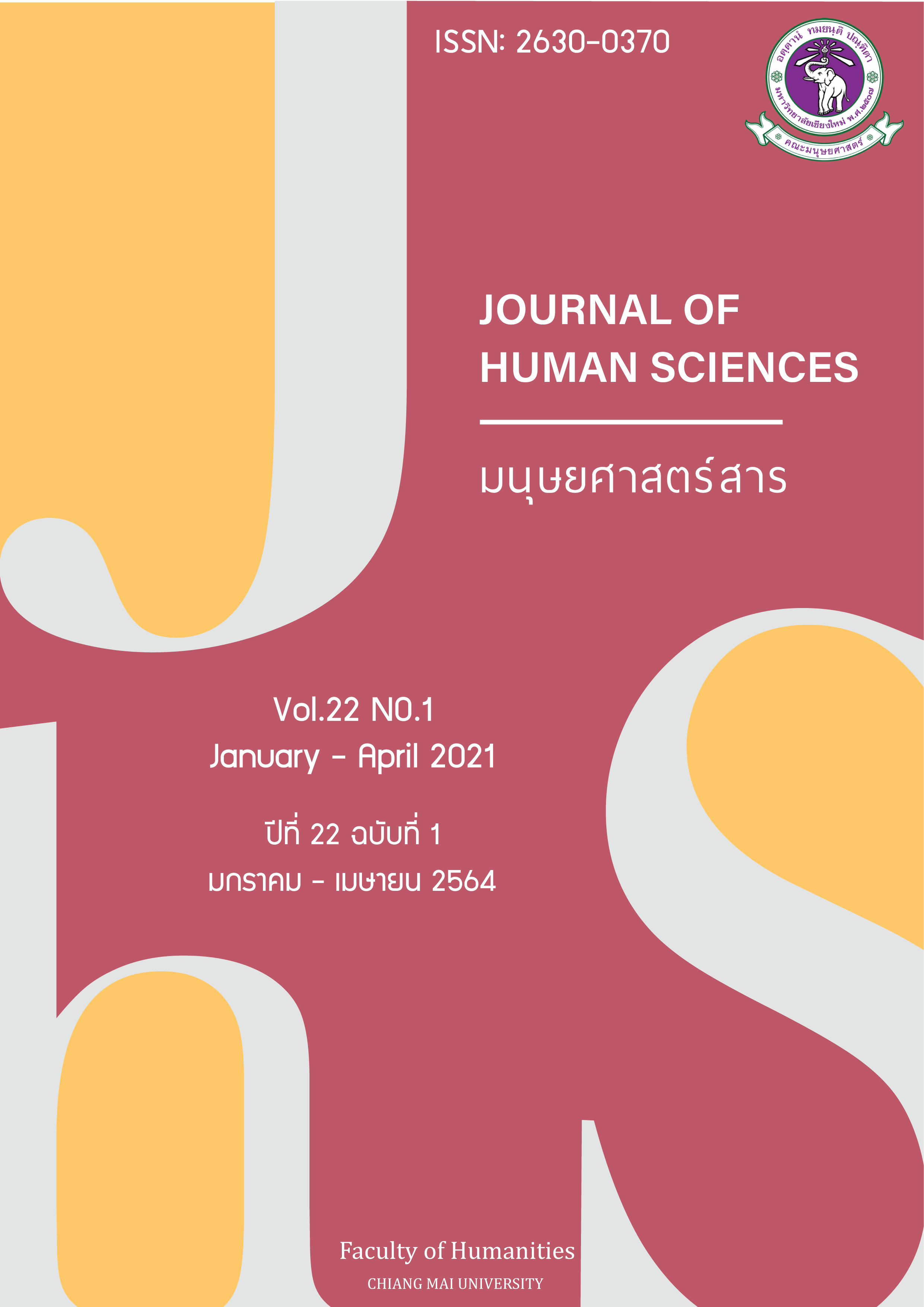พฤฒพลัง: กรณีศึกษาผู้สูงอายุที่ออกกำลังกายในน้ำ
Main Article Content
บทคัดย่อ
การวิจัยครั้งนี้มีวัตถุประสงค์เพื่อศึกษากระบวนการพัฒนาพฤฒพลังของผู้สูงอายุที่ออกกำลังกายในน้ำ เป็นการวิจัยแบบกรณีศึกษา ใช้วิธีการสัมภาษณ์เชิงลึกเป็นเครื่องมือในการเก็บรวบรวมข้อมูล ผู้ให้ข้อมูลคือผู้สูงอายุที่ออกกำลังกายในน้ำจำนวน 4 คน ผลการวิจัยพบว่า ผู้ให้ข้อมูลคนที่ 1 และ 2 เป็นคู่รักที่คู่ออกกำลังกายในน้ำอย่างสม่ำเสมอ รวมถึงให้ความสำคัญในด้านสังคมและการดูแลสุขภาพด้านอื่นๆ ผู้ให้ข้อมูลคนที่ 3 ลูกสูงวัยที่ดูแลแม่สูงวัย การดูแลแม่ทำให้ชีวิตของเธอมีความหมาย ทั้งการเป็นคนอัธยาศัยดีได้สร้างสังคมของการออกกำลังกายในน้ำให้มีความหมายมากขึ้น ผู้ให้ข้อมูลคนที่ 4 เคยประสบกับวิกฤตสุขภาพจนตระหนักได้ว่าไม่มีสิ่งใดมีค่าไปกว่าการพึ่งพาตัวเองและการดูแลสุขภาพ การเป็นผู้นำให้กับกลุ่มผู้ออกกำลังกายในน้ำ การมาออกกำลังกายจึงมีคุณค่า ผู้ให้ข้อมูลทั้ง 4 ท่านสามารถพึ่งพาตนเอง มีความมั่นคงทางเศรษฐกิจซึ่งเอื้อต่อการดูแลสุขภาพตนเอง คุณลักษณะดังกล่าวจึงสอดคล้องกับพฤตพลังอันได้แก่ 1. การมีสุขภาพที่ดี 2. ความมั่นคงจากการพื้นฐานทางเศรษฐกิจ 3. การมีส่วนร่วมกับผู้สูงอายุรายอื่นๆ ซึ่งสามารถอธิบายกระบวนการนำไปสู่พฤตพลังได้ด้วยแนวคิดความหมายในชีวิต ทฤษฏีพัฒนาการทางจิตสังคมของอิริกสันและทฤษฎีกิจกรรม
Article Details
เอกสารอ้างอิง
Chitaphankun, S. (2001). phusung ayu nai prathet Thai raingan thopthuan ongkhwamru lae sathanakan nai patchuban talo̜t chon khosanoenae thang nayobai lae kanwichai [ผู้สูงอายุในประเทศไทย รายงานการทบทวนองค์ความรู้และสถานการณ์ปัจจุบัน ตลอดจนข้อเสนอแนะทางนโยบายและการวิจัย]. Bangkok: Chulalongkorn University.
Ebersole, P., & Hess, P. (1998). Toward Healthy Aging: Human Needs and Nursing Response. MO: Mosby-Year Book.
Erikson, E. H. (1982). The life cycle completed: A review. NY: Norton
Frankl, V. E. (1959). Man’s search for meaning: an introduction to Logotherapy. NY: New American Library. DOI: 10.1007/978-1-4939-0308-5_2.
Frankl, V. E. (2015). chiwit mai rai khwammai [Man’s Search for Meaning] (N. Wawhong, Trans.). Bangkok: Amarin.
Maier, H., & Klump, P.L. (2005). Social participation and survival at older ages: Is the effect Driven by activity content or context. European Journal of Ageing, 2. 31-39.
Muangsakul, W. (2015). kanphatthana sakkayaphap phusung ayu thi asai yu tamlamphang duai naeokhit phrưt phalang [The Concept of Active Ageing and Capacity Development of Ageing Living Alone]. Journal of Social Research, 38(2). 93-112.
National Statistical Office. (2014). kansamruat prachakon sung ayu nai prathet Thai Pho.So. songphanharo̜ihasipchet [The 2014 survey of the older persons in Thailand]. Retrieved from https://www.dop.go.th/download/knowledge/knowledge_th_20162508144025_1.pdf
Penedo, F. J., & Dahn, J. R. (2005). Exercise and well-being: A review of mental and physical Health benefits associated with physical activity. Current Opinion in Psychiatry, 8(2). 189-193.
Pothongsunun, P. (1990). thara bambat: kanborihan kai nai nam [Hydrotherapy: Physical Therapy in Water]. Chiang Mai: Faculty of Associated Medical Science.
Thailand Science Research and Innovation (TSRI). (2002). prakat samnakngan kongthun sanapsanun kanwichai ruang prakat rap khosanoe khrongkan wichai chut khrongkan kanwichai kieokap phusung ayu [ประกาศสำนักงานกองทุนสนับสนุนการวิจัยเรื่อง ประกาศรับข้อเสนอโครงการวิจัย ชุดโครงการการวิจัยเกี่ยวกับผู้สูงอายุ]. Retrieved from http://www/trf.or.th/home/draft/dep3/announcement-%20old.doc
Watanatada, P. (n.d.). kanok kamlang kai: naeothang kanok kamlang kai phua khunnaphap chiwit thi di [Exercise concepts for healthy lifestyle]. Retrieved from http://www.haamor.com/th/การออกกำลังกาย/#article117
World Health Organization (WHO). (2002). Active ageing: A policy framework (WHO/NMH/NPH/02.8). Retrieved from http://www.unati.uerj.br/doc_gov/destaque/Madri2.pdf


